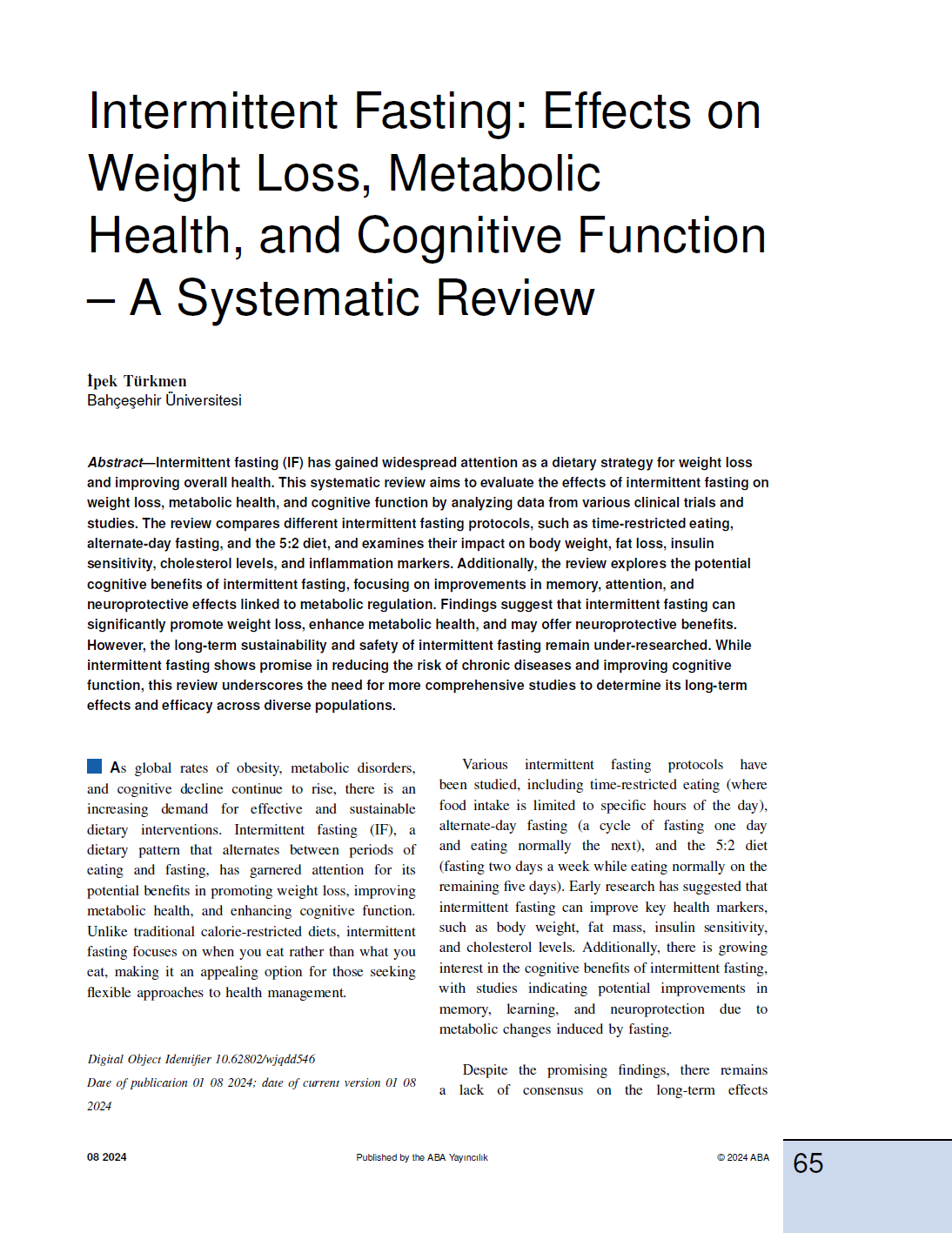Intermittent Fasting: Effects on Weight Loss, Metabolic Health, and Cognitive Function – A Systematic Review
DOI:
https://doi.org/10.62802/d0xg2122Keywords:
Intermittent Fasting, Body Weight Reduction, Dietary Protocol Comparisons, Health Outcomes of Fasting, Weight Loss Strategies, Metabolic Health, Effects on Weight Loss, Cognitive FunctionAbstract
Intermittent fasting (IF) has gained widespread attention as a dietary strategy for weight loss and improving overall health. This systematic review aims to evaluate the effects of intermittent fasting on weight loss, metabolic health, and cognitive function by analyzing data from various clinical trials and studies. The review compares different intermittent fasting protocols, such as time-restricted eating, alternate-day fasting, and the 5:2 diet, and examines their impact on body weight, fat loss, insulin sensitivity, cholesterol levels, and inflammation markers. Additionally, the review explores the potential cognitive benefits of intermittent fasting, focusing on improvements in memory, attention, and neuroprotective effects linked to metabolic regulation. Findings suggest that intermittent fasting can significantly promote weight loss, enhance metabolic health, and may offer neuroprotective benefits. However, the long-term sustainability and safety of intermittent fasting remain under-researched. While intermittent fasting shows promise in reducing the risk of chronic diseases and improving cognitive function, this review underscores the need for more comprehensive studies to determine its long-term effects and efficacy across diverse populations.References
Elsworth, R., Monge, A., Perry, R., Hinton, E., Flynn, A., Whitmarsh, A., … & Brunstrom, J. (2023). The effect of intermittent fasting on appetite: a systematic review and meta-analysis. Nutrients, 15(11), 2604. https://doi.org/10.3390/nu15112604
Jamshed, H., Steger, F., Bryan, D., Richman, J., Warriner, A., Hanick, C., … & Peterson, C. (2022). Effectiveness of early time-restricted eating for weight loss, fat loss, and cardiometabolic health in adults with obesity. Jama Internal Medicine, 182(9), 953. https://doi.org/10.1001/jamainternmed.2022.3050
Jamshed, H., Beyl, R., Manna, D., Yang, E., Ravussin, É., & Peterson, C. (2019). Early time-restricted feeding improves 24-hour glucose levels and affects markers of the circadian clock, aging, and autophagy in humans. Nutrients, 11(6), 1234. https://doi.org/10.3390/nu11061234









